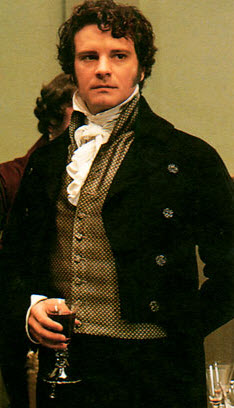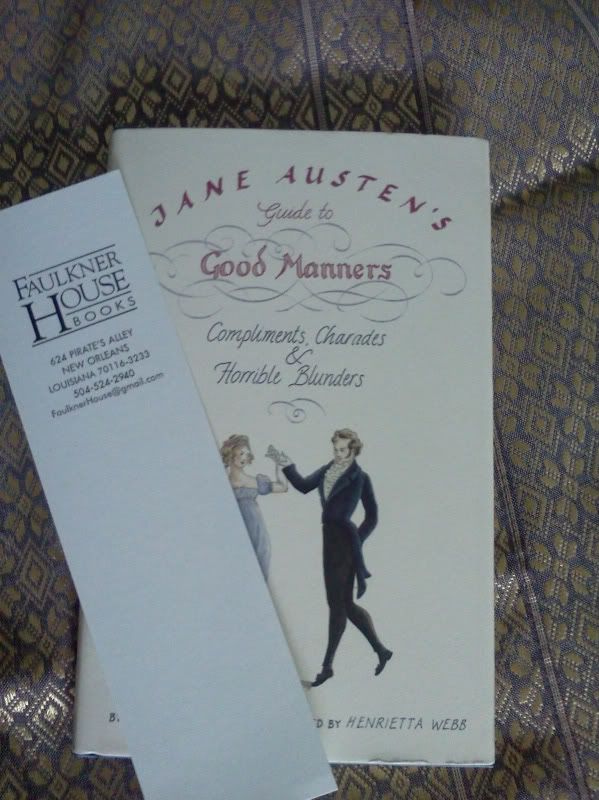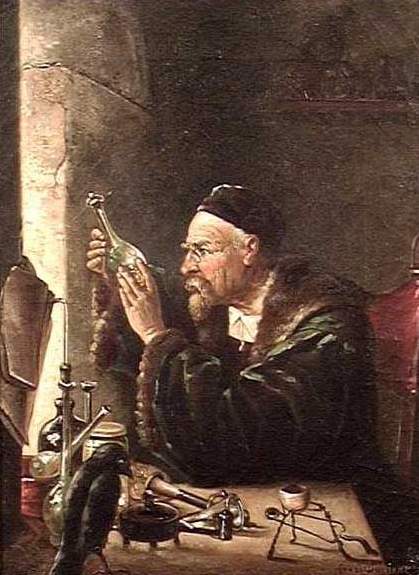Pride and Prejudice
There is no question of P&P's influence and staying power. More than any of Austen's other novels, P&P is the direct ancestor of the modern romance novel. It gives us a spunky heroine, a handsome and honorable hero and... the formula. I firmly believe that the Regency subgenre of historical romance is as booming as it is because of P&P. This novel is the gateway drug to Regency obsession.
 |
| Hellooooo, Darcy. Rawr. |
As happens when people are smitten with a particular story, readers are left wondering, "And then what?" about their favorite characters. Fan fiction, in which an author other than the story's original teller imagines new adventures for characters, is a fun way to explore possibilities beyond The End. Most fan fiction remains unpublished. Occasionally it makes it to print.
When Scarlett: The Sequel to Margaret Mitchell's Gone With The Wind was published in 1991, it was a Very Big Deal. Fans of the original novel and movie adaptation held their collective breath and cringed in anticipation of what Alexandra Ripley had done to Rhett and Scarlett. Reviews of the new novel were published nation-wide--most of them highly unfavorable. Readers were not best pleased with Ms. Ripley's treatment of these beloved characters.
In light of that novel's poor reception, I am all astonishment at the cottage industry that has emerged of Pride and Prejudice-inspired novels. There are just. so. many. of. them. The original story has been told from Darcy's point of view. Elizabeth Aston has published seven P&P-related novels. At least one which I have personally read (the Althea Darcy novel) portrays Elizabeth and Darcy as absentee parents. Colleen McCullough gave us a novel in which Elizabeth and Darcy have a sexless, loveless marriage (and, in fact, Darcy regrets ever marrying beneath his station.). The Darcys are a mystery solving duo. They fight a P&P character now suffering with Dissociative Identity Disorder. And there are zombies. Which now have a prequel. And a film in development.
A search on Amazon.com for Mr. Darcy returns 571 hits. Try Pride and Prejudice Sequels.
 |
| She's spun in her grave so many times, the threading is stripped. |
Based on the sheer number of these novels, I can only assume they make money, which answers the question, "Why are they still being published?" But it doesn't answer another question: Why are authors still writing these books? Don't they have other stories to tell? Stories of their own?
I adore Pride and Prejudice. I truly do. I don't think you'll find a Regency Romance author who can't trace her love of the period back to Austen, and probably to P&P. And while I certainly take inspiration from novels I read, I, personally, would not wish to make an entire career directly based on someone else's work. Have we not yet exhausted the general scenarios for Darcy and Elizabeth fan fiction? Eventually, the market hits saturation point. Sales and readership start to decline. Are we there yet with Pride and Prejudice-inspired novels? Whether or not the market is, I am. I'm weary of seeing two of my favorite characters paraded out for stories that never live up to the original. I don't think I'll be picking up another any time soon--not when there are so many new characters on the shelves, just waiting for me to meet them.
What do you think, readers? Have you read any P&P sequels or retellings? Have any of your favorite novels received the same third-party sequel treatment? How do you feel about them? Let's discuss it in the comments!













